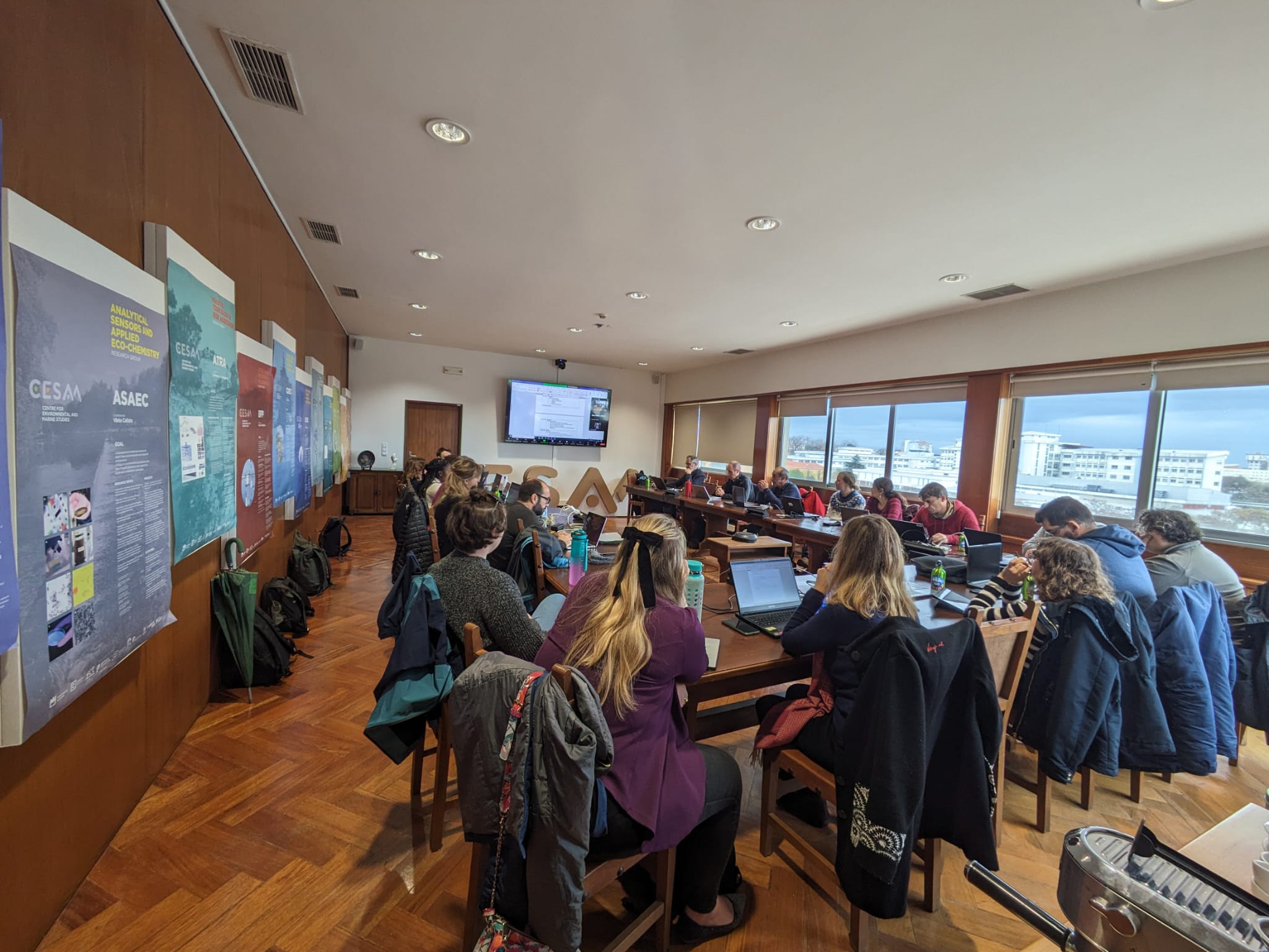This week (5-7 March) CESAM will host an international workshop to develop the first ever Atlantic-scale maps of the distribution of key species and habitats to inform the development of a deep-ocean biodiversity digital twin.
The workshop, co-organized by the University of Aveiro and the University of Plymouth under the umbrella of the UN Ocean Decade Programme, Challenger 150 (www.challenger150.world), is supported by the Department for Science, Innovation and Technology of the United Kingdom. Researchers from 12 countries (Portugal, United Kingdom, Norway, Iceland, Ireland, France, Spain, South Africa, Canada, USA, Brazil, Uruguay, and Argentina) will meet to deliver Atlantic scale unified datasets for the distribution of key species and habitats supporting onward modelling of distributions both now and under climate change scenarios.
Predicting how the marine biological ecosystem will respond to climate change, and its subsequent impacts on industry and wider society is a key driver in the development of Ocean Digital Twins. Digital Twins are virtual models of a real system that enable simulations to determine possible outcomes of different decision pathways. However, they require terabytes of observations, ideally taken across different ocean regions, in order to model ocean system responses to ‘what if’ scenarios. They therefore demand significant international cooperation. Portugal and the UK have a long history of oceanographic research. Both nations currently co-lead the Challenger 150 programme, which coordinates deep-sea biodiversity research to inform sustainable development.
